Nine New Full-Time Faculty Join the BU Law Community for AY 2025–2026
BU Law welcomes new faculty with expertise ranging from criminal law and procedure to privacy and tech law.

Nine New Full-Time Faculty Join the BU Law Community for AY 2025–2026
BU Law welcomes new faculty with expertise ranging from criminal law and procedure to privacy and tech law.
The 2025–2026 academic year brings great promise with an impressive new class of law students and faculty joining our community. Boston University School of Law is proud to welcome nine new full-time faculty members in its doctrinal and lawyering programs. Two of these new faculty members are also joining the community as executive directors; one will lead the BU Program on Reproductive Justice, and another will lead the BU/MIT Student Innovations Law Clinic. Three of our nine new faculty members are joining us as visiting faculty, including our annual Distinguished William and Patria Kleh Visiting Professor of International Law. With scholarship covering administrative law, corporate governance, criminal law and procedure, human rights and legal mobilization, intellectual property, legal history, nonprofit law, privacy law, tech law, and more, our newest faculty members are primed to make an impact on BU Law inside and outside of the classroom.
Doctrinal Faculty
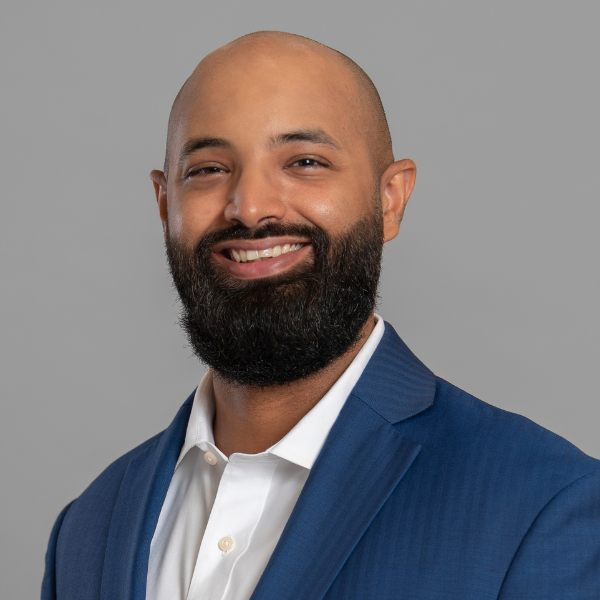
Emmanuel Hiram Arnaud
Associate Professor of Law
Emmanuel Hiram Arnaud joins BU Law from the Benjamin N. Cardozo School of Law. His research focuses on the application of the federal constitution, criminal law and procedure in the territories of the United States, issues of criminal procedure broadly, and race and the law. His work has appeared or is forthcoming in the Columbia Law Review, Iowa Law Review, Fordham Law Review, and Cornell Law Review, among others.
At Cardozo School of Law, Professor Arnaud taught Criminal Law, Race and the Law, and a seminar on the US territories. He was previously a visiting assistant professor at Cornell Law School. Prior to joining academia, Arnaud worked as a fellowship attorney at Justice 360, where he assisted in post-conviction proceedings and conducted mitigation investigations throughout South Carolina in support of people who were on death row and people who were sentenced as juveniles to life without parole. He went on to work as a law clerk for Judge Nelson S. Román at the US District Court, Southern District of New York and for Judge Juan R. Torruella (’57) at the US Court of Appeals for the First Circuit. Arnaud also worked as an appellate public defender at the Center for Appellate Litigation and as a litigation associate at Paul, Weiss, Rifkind, Wharton & Garrison. Arnaud earned a BA from Columbia University and a JD from Cornell Law School.
Professor Arnaud serves on the executive committee of the AALS Criminal Procedure Section. He is a member of the New York City Bar Association’s Puerto Rico Task Force and the New York State Bar Association’s Task Force on the US Territories. He also serves as co-chair of the LatinoJustice Líderes Young Professionals Board.

Elizabeth King
Associate Professor of Law
Elizabeth King is a scholar of corporate governance, corporate finance, and nonprofit law. Professor King was previously a Climenko Fellow and Corporate Governance Fellow at Harvard Law School. Her research explores the impact of markets and regulation on nonprofit organizations. Professor King is particularly interested in the role of nonprofit hospitals and the rise of for-profit corporations in the healthcare sector. Her work has appeared in publications such as the Yale Law & Policy Review, the Berkeley Journal of Employment and Labor Law, and Bloomberg Law.
Professor King’s teaching and scholarship are informed by her practice experience. Prior to entering academia, she practiced healthcare law at Ropes & Gray LLP and corporate law at Davis Polk & Wardwell LLP. During this time, she also maintained a pro bono practice advising nonprofit organizations. Before becoming a lawyer, she worked at a financial services nonprofit.
Professor King holds a JD from Yale Law School and an AB in Government from Dartmouth College. She is admitted to the bar in Massachusetts and New York.
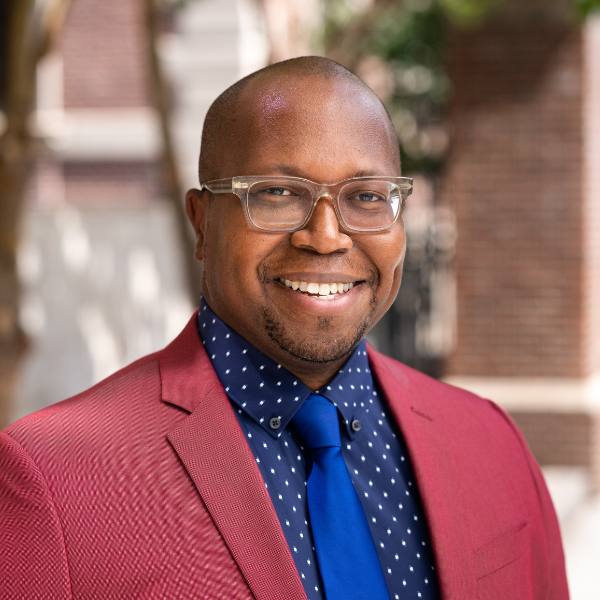
Ayodeji Kamau Perrin
Associate Professor of Law
Professor Ayodeji Kamau Perrin is an interdisciplinary scholar of human rights, social movements, and legal mobilization. Before joining the BU Law faculty, Professor Perrin was a George Sharswood Fellow at the University of Pennsylvania Carey Law School, where he taught courses on race and the law and business and human rights. He is interested in all phases of litigation-based social change processes, including the factors that lead aggrieved individuals and groups to select a litigation-based strategy, the internal dynamics of a social change movement or campaign, countermobilization, the decision-making of judges, judgment compliance and non-compliance, and backlash.
Professor Perrin’s published work has appeared in Boston University Law Review, Columbia Human Rights Law Review, Temple International and Comparative Law Journal, William and Mary Bill of Rights Journal, the Proceedings of the American Society of International Law, and the University of Pennsylvania Journal of International Law.
Professor Perrin holds a PhD from Northwestern University in political science. He received his JD from the University of Pennsylvania, and he received BA and MA degrees in political science from Tufts University and Columbia University, respectively. He entered academia as a postdoctoral fellow and adjunct faculty member at Temple University in the Department of Political Science, where he taught courses on the role of race in international politics, LGBTQ politics and legal mobilization, and international human rights law. He has also served as a staff attorney with the City of Philadelphia Board of Ethics and as a judicial law clerk in the Philadelphia Court of Common Pleas.
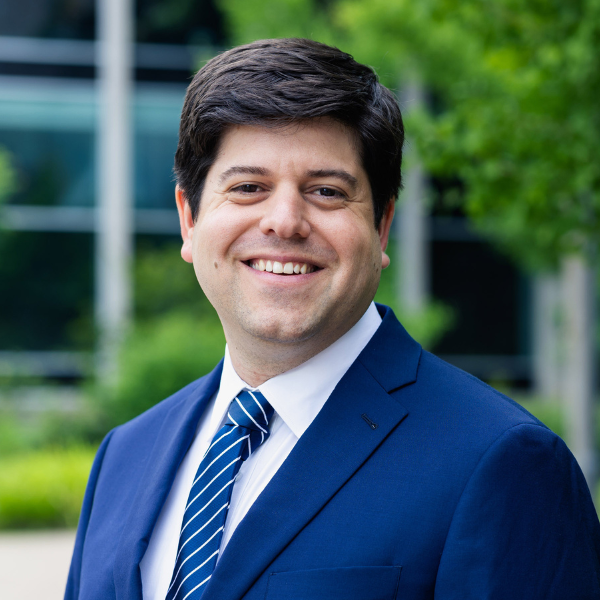
Rephael G. Stern
Associate Professor of Law
Rephael Stern writes and teaches in the areas of administrative law, constitutional law, international law, property, legal history, and comparative law. Before joining BU Law, Professor Stern held fellowships at Harvard Law School and NYU School of Law. His writing has appeared or is forthcoming in the Yale Law Journal, Constitutional Commentary, Law and History Review, and Comparative Studies in Society and History, among other outlets.
While at Harvard University, he received the Irving Oberman Memorial Prize for Constitutional Law, the Israeli History and Law Association Best Article Prize, the Bok Center Certificate of Distinction in Teaching, and numerous fellowships. He clerked for the late Honorable Bruce M. Selya on the US Court of Appeals for the First Circuit. He received his JD cum laude from Harvard Law School, a PhD in history from Harvard University, an MA in Near Eastern studies from Princeton University, and a BA in history from Brandeis University.
Clinical & Experiential Faculty
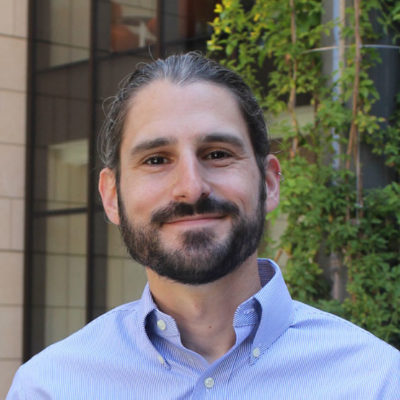
Jef Pearlman
Executive Director of the BU/MIT Student Innovations Law Clinic and Clinical Professor
Jef Pearlman joins BU Law after seven years at USC Gould School of Law as a clinical professor of law and the director of the Intellectual Property & Technology Law Clinic. Pearlman previously worked at Stanford Law’s Juelsgaard Intellectual Property and Innovation Clinic as the clinical supervising attorney and lecturer in law. In each of these roles, he supervised and trained second- and third-year law students to represent non-profits, innovators, creators, and students at the cutting edge of intellectual property and technology policy in courts, administrative agencies, and the public sphere.
Before becoming a lawyer, Professor Pearlman received bachelor’s and master’s degrees in computer science from Massachusetts Institute of Technology and his JD from Stanford Law School, where he represented clients as a student in the Cyberlaw Clinic. After law school, he clerked for the Honorable William W. Schwarzer, who served on the US District Court for the Northern District of California and sat by designation on the First, Sixth, and Ninth Circuits. After clerking, he was awarded the Bruce J. Ennis Fellowship for First Amendment Law, which enabled him to advocate for sound intellectual property, technology, and innovation policy as a fellow and staff attorney at the Washington, DC-based nonprofit, Public Knowledge. Professor Pearlman also litigated patent disputes in federal court and at the International Trade Commission and advised clients on a variety of corporate, transactional, and litigation issues relating to open-source software at Covington & Burling LLP. He is excited to be returning to Boston and working with entrepreneurs and creative thinkers at BU and his alma mater, MIT, through the BU/MIT Student Innovations Law Clinic.
Reproductive Justice Faculty

Sapna Khatri
Lecturer and Executive Director, BU Program on Reproductive Justice
Sapna Khatri is a reproductive justice attorney with expertise in policy advocacy for reproductive health access and enhanced privacy protections. She leads the BU Program on Reproductive Justice as the program’s first executive director.
Before joining BU Law, Director Khatri was the inaugural director of the Massachusetts Attorney General’s Reproductive Justice Unit. Her work included expanding and protecting access to reproductive and gender affirming care, addressing disparities in maternal health, tackling the harmful practices of crisis pregnancy centers, working across state lines to respond to national attacks on reproductive health care, and championing vital tools like comprehensive sex education and protections on data privacy. In 2024–2025, she served as a Wasserstein Fellow at Harvard Law School, counseling students about public service careers.
Prior to her work in the Commonwealth, she was a Sears Clinical Law Teaching Fellow at the University of California Los Angeles, where she launched the school’s Reproductive Justice Externship Program and helped establish the nation’s first medical-legal partnership at a Planned Parenthood clinic. She previously worked as a legal fellow in the Women and Reproductive Rights Project at the ACLU of Illinois, later serving as the organization’s Advocacy & Policy Counsel for privacy, technology, and surveillance matters.
Director Khatri received her law degree from Washington University in St. Louis School of Law, where she served as managing editor of the Global Studies Law Review and earned the Public Service Student of the Year Award for her graduating class. She received her undergraduate degrees in journalism and international studies from the University of Missouri-Columbia and was recently honored with a Young Alumni Award from the institution. She is fluent in Hindi and Punjabi; studied French; and is currently a member of the bar in Missouri and Washington, DC.
Visiting Faculty

Enrique Alberto Prieto-Ríos
William & Patricia Kleh Visiting Professor in International Law (Fall 2025)
Enrique Alberto Prieto-Ríos joins BU Law from Universidad del Rosario, where he served as research director of the Faculty of Law and head of the Research Group on International Law. He holds a PhD in Law from Birkbeck, University of London, an MA in International Law from University College London, and an LLB from Universidad del Rosario. Professor Prieto-Ríos is currently the chief editor of Estudios Socio-Jurídicos. His extensive academic contributions include the authorship of numerous books, book chapters, and journal articles published in several academic outlets. Beyond academia, Professor Prieto-Ríos has been a visiting research fellow at prestigious institutions such as the Max Planck Institute for Comparative Public Law and International Law, Osgoode Hall Law School at York University, and the School of Law at the University of Warwick. He has also lectured at Universidad de los Andes and served as a sessional lecturer at Birkbeck, University of London.
His expertise extends to policy and legal consultancy, having advised the Presidential Counsellor for Human Rights and Foreign Affairs on Colombia’s third National Action Plan on Business and Human Rights. He has provided strategic human rights guidance to the Ministry of Justice and the Ministry of Defense and has worked with organizations such as Panagora Group (on USAID programs for the protection of human rights defenders) and the International Committee of the Red Cross (ICRC) on International Humanitarian Law practices in Colombia.
Since 2019, Professor Prieto-Ríos has served as a commissioner on Colombia’s Advisory Commission on Peace and Human Rights. His previous roles also include clerking at the Colombian Constitutional Court and directing the British and Colombian Lawyers Association (BRICOL), further highlighting his commitment to advancing human rights, international law, and peacebuilding efforts in Colombia.
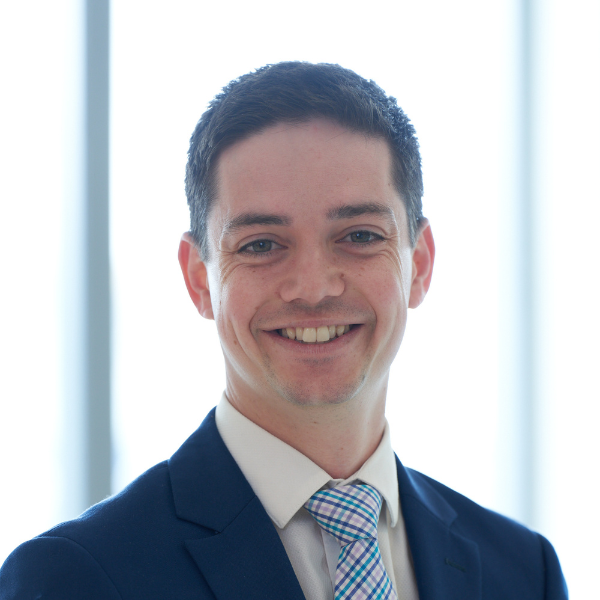
Seth Reiner
Visiting Lecturer (2025–26 and 2026–27 academic years)
Seth Reiner joins the Legal Writing and Advocacy Program as a visiting professor. Prior to joining Boston University, he worked as an associate at Foley Hoag LLP in Boston, where he represented clients in employment and healthcare matters and disputes involving state attorneys general. As part of his practice, he litigated the constitutionality of several Massachusetts initiative petitions at the Supreme Judicial Court. For the past two years, He also worked as an adjunct professor at Suffolk University, teaching legal research and writing to undergraduate pre-law students.
His research interests include direct democracy, education, and constitutional law. Specifically, state constitutional requirements for placing initiative petitions on state ballots and the appropriate guardrails on direct democracy. His research also focuses on the conflict between federal and state law. His article “Me Too? Incentivizing States to Adopt Consent-Based Sex Education,” published in Northeastern University Law Review, explores the constitutional restraints placed on the federal government by the Tenth Amendment in the field of education.
Reiner graduated from Northeastern University School of Law in 2020, where he served as managing editor for the Law Review and as a two-year Lawyering Fellow for the legal writing program. During law school, he also worked as a graduate resident assistant for Massachusetts Institute of Technology. In addition to his JD, he obtained his BS summa cum laude from Roger Williams University in 2017, where he was awarded the Zeno Prize and the Rodolphé-Louis Hébert Award for Excellence in Philosophy.
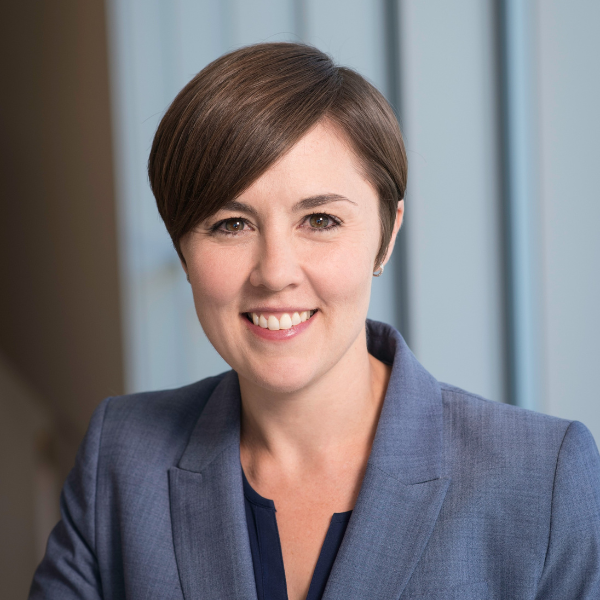
Jessica A. Stanton
Visiting Professor of Law (2025–2026 academic year)
Jessica Stanton is visiting BU Law from her position as an associate professor of political science at Temple University. Her research focuses on international relations and international law, including the impact of law on the dynamics and resolution of civil wars, domestic and international criminal accountability for wartime violence and terrorism, and the influence of law and institutions in international affairs more broadly.
Professor Stanton’s book Violence and Restraint in Civil War: Civilian Targeting in the Shadow of International Law (Cambridge University Press, 2016) examines why some governments and rebel groups engaged in civil war adopt strategies that involve the deliberate targeting of civilians, while other groups, in accordance with international humanitarian law, refrain from attacking civilian populations. Violence and Restraint in Civil War received the International Studies Association’s Best Book of the Decade Award in 2020; the International Studies Association’s annual award for the best book on international studies published in 2016; and the Lepgold Book Prize, awarded by the Mortara Center for International Studies at Georgetown University for the best book on international relations published in 2016. Professor Stanton’s research has also been published in the Annual Review of Political Science, International Organization, International Studies Quarterly, the Journal of Conflict Resolution, the Journal of Global Security Studies, The Journal of Politics, and The Oxford Handbook of Terrorism.
Before joining Temple, Professor Stanton was a faculty member at the Hubert H. Humphrey School of Public Affairs at the University of Minnesota and in the Political Science Department at the University of Pennsylvania. She also held fellowships at the Center for International Security and Cooperation at Stanford University, the John M. Olin Institute for Strategic Studies at Harvard University, and the Christopher H. Browne Center for International Politics at the University of Pennsylvania. Professor Stanton received her PhD in political science with distinction from Columbia University and her BA in international relations with distinction from Stanford University.